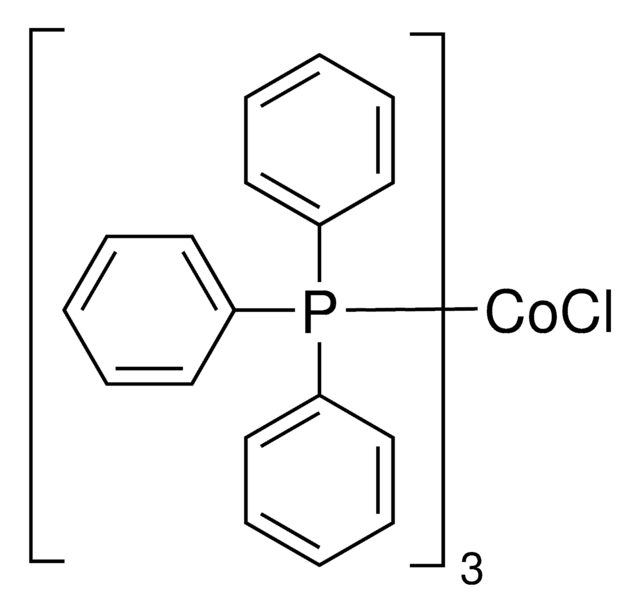199982
Tris(triphenylphosphine)rhodium(I) chloride
Synonym(s):
NSC 124140, RhCl(PPh3)3, Rhodium(I) tris(triphenylphosphine) chloride, Wilkinson’s catalyst
About This Item
Recommended Products
Quality Level
reaction suitability
core: rhodium
reagent type: catalyst
SMILES string
Cl[Rh].c1ccc(cc1)P(c2ccccc2)c3ccccc3.c4ccc(cc4)P(c5ccccc5)c6ccccc6.c7ccc(cc7)P(c8ccccc8)c9ccccc9
InChI
1S/3C18H15P.ClH.Rh/c3*1-4-10-16(11-5-1)19(17-12-6-2-7-13-17)18-14-8-3-9-15-18;;/h3*1-15H;1H;/q;;;;+1/p-1
InChI key
IXAYKDDZKIZSPV-UHFFFAOYSA-M
Looking for similar products? Visit Product Comparison Guide
Related Categories
General description
Application
Catalyst used for many organic reactions including:
- Chemoselective allylic alkylations
- Stoichiometric activation of Si-H bonds and hydrosilylations
- Inter- and intramolecular hydroacylation of alkenes along with a cocatalyst
- Polymerization of diorganostannanes
Signal Word
Warning
Hazard Statements
Precautionary Statements
Hazard Classifications
Aquatic Chronic 4 - Skin Sens. 1
Storage Class Code
11 - Combustible Solids
WGK
WGK 3
Personal Protective Equipment
Certificates of Analysis (COA)
Search for Certificates of Analysis (COA) by entering the products Lot/Batch Number. Lot and Batch Numbers can be found on a product’s label following the words ‘Lot’ or ‘Batch’.
Already Own This Product?
Find documentation for the products that you have recently purchased in the Document Library.
Customers Also Viewed
Articles
Vinyl-metal reagents play a pivotal role in organic synthesis. Among the vinyl-metal reagents available, silicon-based reagents are of increasing importance. This is largely due to their low cost, minimal toxicity, ease of handling, and the simplicity of byproduct removal.
A Highly Efficient Hydrosilylation Catalyst, sigma-aldrich is pleased to offer [Cp*Ru(MeCN)3]PF6, as well as a number of other catalysts for hydrosilylation.
Our team of scientists has experience in all areas of research including Life Science, Material Science, Chemical Synthesis, Chromatography, Analytical and many others.
Contact Technical Service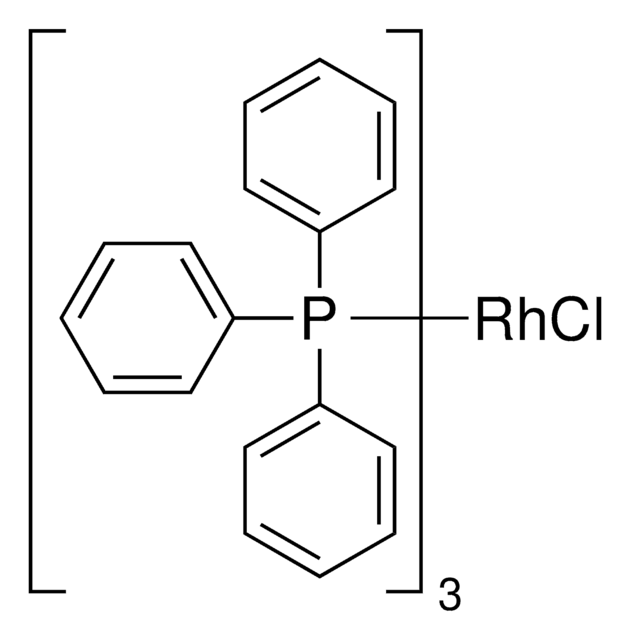

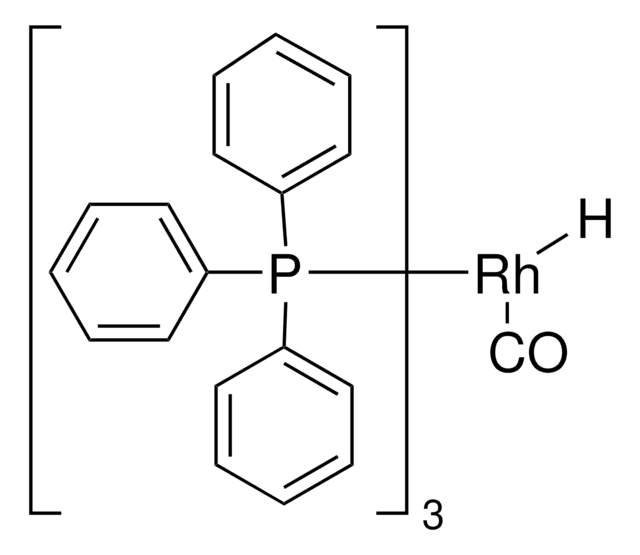
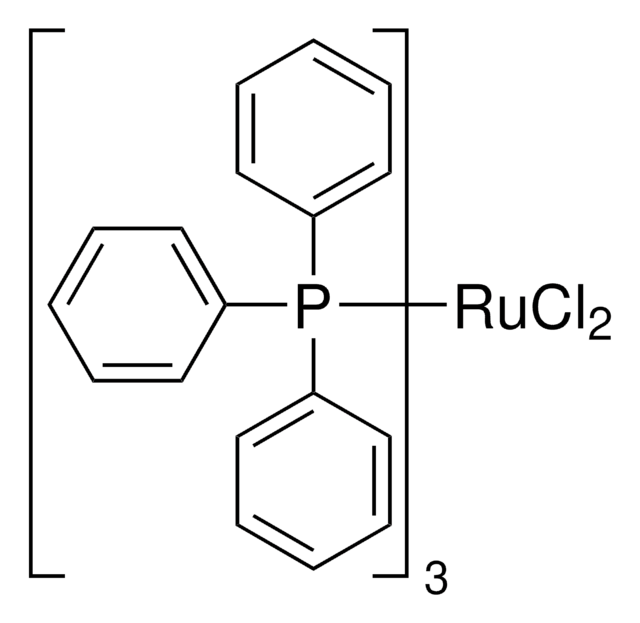

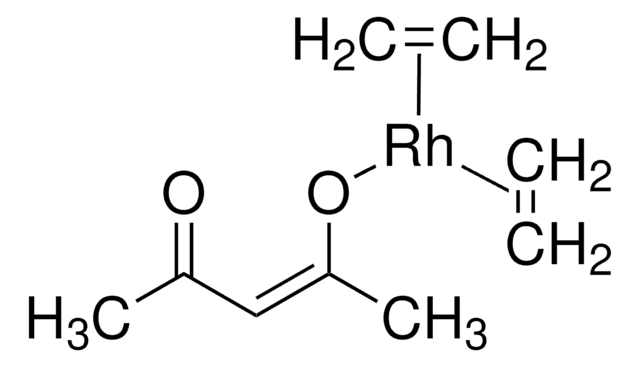
rhodium(I) tetrafluoroborate 98%](/deepweb/assets/sigmaaldrich/product/structures/138/264/047825b4-1f5a-486a-9f51-8d9c18b1382f/640/047825b4-1f5a-486a-9f51-8d9c18b1382f.png)
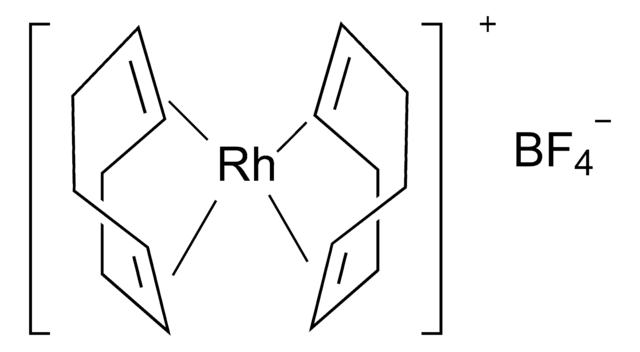

![[1,1′-Bis(diphenylphosphino)ferrocene]dichloropalladium(II)](/deepweb/assets/sigmaaldrich/product/structures/130/734/8846aa26-1858-458a-998d-8c306c13bf0f/640/8846aa26-1858-458a-998d-8c306c13bf0f.png)


